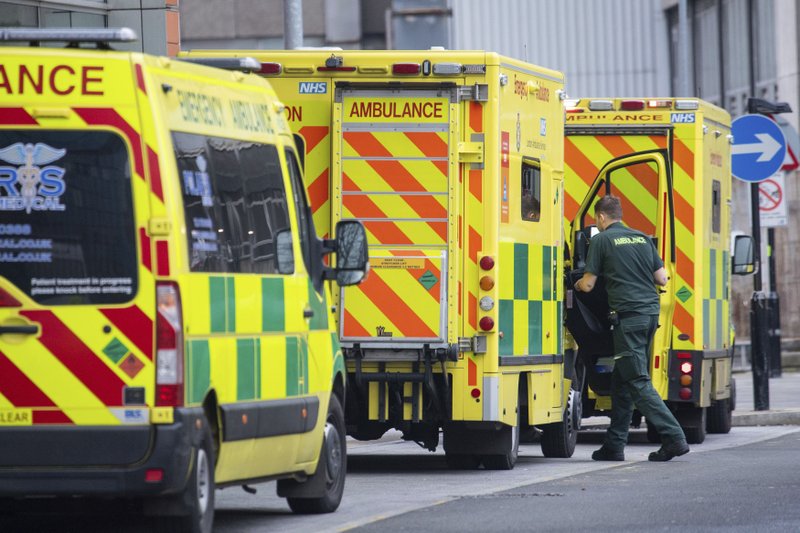The U.K. opened seven mass vaccination centers Monday as it moved into the most perilous moment of the COVID-19 pandemic, with exhausted medical staff reeling under the pressure of packed hospitals and increasing admissions.
England’s chief medical officer, Dr. Chris Whitty, warned people to strictly follow measures to prevent the spread of the virus while they wait their turn for a vaccine shot. The government is trying to vaccinate some 15 million people by Feb. 15 — but Britain’s National Health Service is struggling to treat those who are ill now.
“I think everybody accepts that this is the most dangerous time we’ve really had in terms of numbers into the NHS,” Whitty told the BBC.
People in the U.K. already face severe coronavirus restrictions but political leaders are considering tightening the rules further as a new, more transmissible variant of COVID-19 aggravates the health care crisis. Leaders want to vaccinate the country out of the crisis, but with hospitals under siege, they must persuade the public to take prevention methods more seriously.
“We don’t rule out taking further action if it’s needed, but it’s your actions now that can make a difference: Stay at home!” Health Secretary Matt Hancock said during a press conference Monday.
Britain, with over 81,000 dead, has the deadliest virus toll in Europe and the number of hospital beds filled by COVID-19 patients has risen steadily for more than a month. English hospitals are now treating 55% more COVID-19 cases than during the first peak of the pandemic in April.
“Everybody knows what they need to do. And I think that’s the key thing — minimize the number of contacts,” Whitty said.
England last week entered a third national lockdown that closed all nonessential shops, schools, colleges and universities for at least six weeks. The lockdown is slightly looser than the one in the spring with many more workplaces and businesses open, but police across the country have issued fines for breaking rules that require people to stay home except for essential reasons such as exercise or grocery shopping.
Prime Minister Boris Johnson’s Conservative government hopes the restrictions will reduce the strain on the NHS while it ramps up a nationwide mass vaccination program using vaccines from Pfizer-BioNTech and a second from Oxford-AstraZeneca. A third vaccine that has been approved for use, by Moderna, won’t arrive until the spring.
Seven large-scale vaccination centers are opening, joining around 1,000 other sites across the country, including ones at hospitals, general practitioners’ clinics and drugstores.
At one vaccination center in Stevenage, north of London, medical workers administering shots described the mood as marked by relief and joy.
“They’ve been quite emotional actually, really pleased that there is some hope at the end of this tunnel, this very long tunnel for everybody,” said Caroline Shepherd, clinical expert for immunizations at Hertfordshire Community NHS Trust. “A few people (were) quite teary, saying ‘I’m really pleased to be here, thank you so much, we’re really grateful for the NHS.’”
Nearly 2.3 million people in the U.K. have received a COVID-19 vaccine so far. The government’s goal is to vaccinate the most vulnerable by mid-February, targeting people over 70, front line healthcare workers, nursing home residents and staff and others who are especially vulnerable. That will protect the people who account for almost 90% of coronavirus-related deaths and may allow restrictions to be eased, the government says.
“(But) we cannot be complacent,″ Johnson said during a visit to a vaccination center in Bristol. “The worst thing now would be for us to allow the success in rolling out a vaccine program to breed any kind of complacency about the state of the pandemic.”
(AP)











